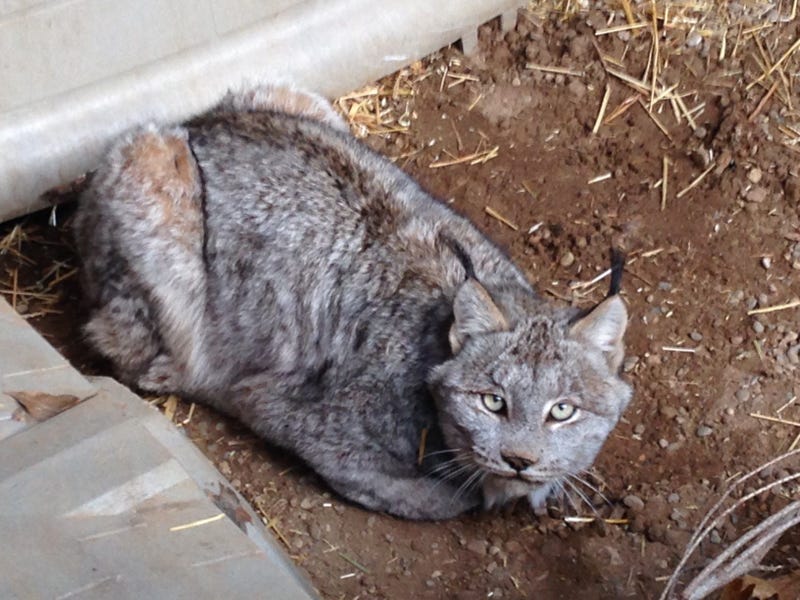
HOWELL (WWJ) - Officials say the first live lynx has been captured in Michigan.
The Michigan Department of Natural Resources says the confirmed Canada Lynx was trapped in Harbor Beach, in Sanilac County, on Sunday, March 17 -- not far from where a lynx was recently confirmed on video in February.
"Apparently a gentleman in that area had thought he saw one that was attacking his domestic ducks and geese. He contacted the DNR to work with them and they devised a plan to catch the lynx," Dana Debenham, director of wildlife and education at Howell Nature Center, told WWJ's Beth Fisher.
The animal is now at the nature center's Wildlife Rehabilitation Clinic, decompressing after a stressful few days.
"It is pretty calm. He or she -- we don't know yet -- is doing very, very well. We're just going to let him settle and get a few good meals in him," Debenham said. "He's probably around 25 pounds, maybe. They're like an overgrown house cat with very long legs and huge paws, which act as snowshoes because they're typically found way up in the tundra way up in Canada."
The Canada Lynx is classified as a threatened species in Michigan with only rare sightings occurring in the last 40 years, primarily in the Upper Peninsula. It is not yet clear if this lynx is an illegal pet or is truly wild.
"There's a number of theories as to where he could have come from," Debenham said. "The most likely is that he was an illegal pet that either was released or escaped. There's also a possible theory that this is a young lynx, a juvenile born last year, and they stay with mom throughout the winter and when she's about to have another litter, then they go off on their own. That would explain why he's attacking domestic ducks, that's an easy meal for an inexperienced young hunter. It would also explain the lack of fear of humans, because we often see that in very young, wild animals."
Though caught in a leg-hold trap, the animal doesn't appear to be injured. A full physical examination under anesthesia will be performed soon.
"We are acting as a holding facility and we are parenting with both the DNR and the Detroit Zoo, who have better resources for doing the physical and behavioral assessments for this animal," said Debenham.
After assessments are performed, a determination will be made if the lynx can be released back to the wild. According to the DNR, this would likely take place in the Upper Peninsula, as Michigan's Thumb area is poor habitat for an animal who prefers a large territory of dense conifer or boreal forests.
